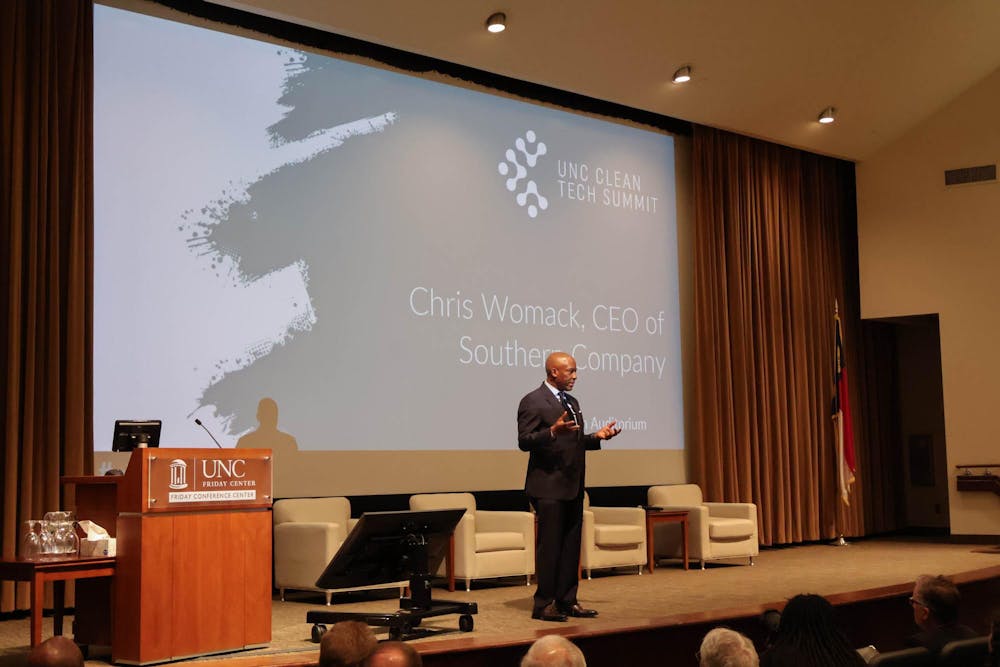The 10th annual UNC Cleantech Summit was held on Thursday and Friday at the Friday Conference Center, which included a variety of keynote speakers and discussions about topics contributing to a clean economy.
The Summit invites academic, business and government professionals who work with clean technology to speak and network. Students also attended to experience and learn about various topics in the environmental industry.
The event was co-hosted by the UNC Institute for the Environment and the Kenan-Flagler Business School's Ackerman Center for Excellence in Sustainability. This year, the summit hosted over 1,000 attendees.
Penny Gordon-Larsen, UNC’s vice chancellor for research, delivered the welcome address and introduced the summit’s first keynote speakers. She said the shared mission of the co-hosts and the keynote institutions in attendance — including Dominion Energy and the U.S. Department of Energy — is to accelerate solutions for social and environmental sustainability.
"This is what convenes bright minds in academia and industry year after year to address some of the most critical issues faced by our state, and the nation,” she said.
With the growth of technology and a greater movement for carbon reduction, there is a need to innovate technological tools to combat the level of carbon in the atmosphere.
A common theme that unites the different clean technology sectors is the goal of achieving net-zero emissions by the year 2050. This midcentury milestone was set by President Joe Biden in Executive Order 14057 in 2021, and it intends to reduce carbon emissions to achieve a balance between the greenhouse gases produced and the greenhouse gas emissions that are taken out of the atmosphere.
David Turk, deputy secretary of the U.S. Department of Energy, was one of the keynote speakers during the Summit. Turk’s career involves shaping national energy policies to further clean energy innovation. His address discussed the United States’ progress in achieving the net-zero commitment and what else needs to be done for that goal.
To be on track to achieving the net-zero goal, there is a strong need for an increase in government legislation and policies, more clean technological innovation and entrepreneurship, Turk said.



